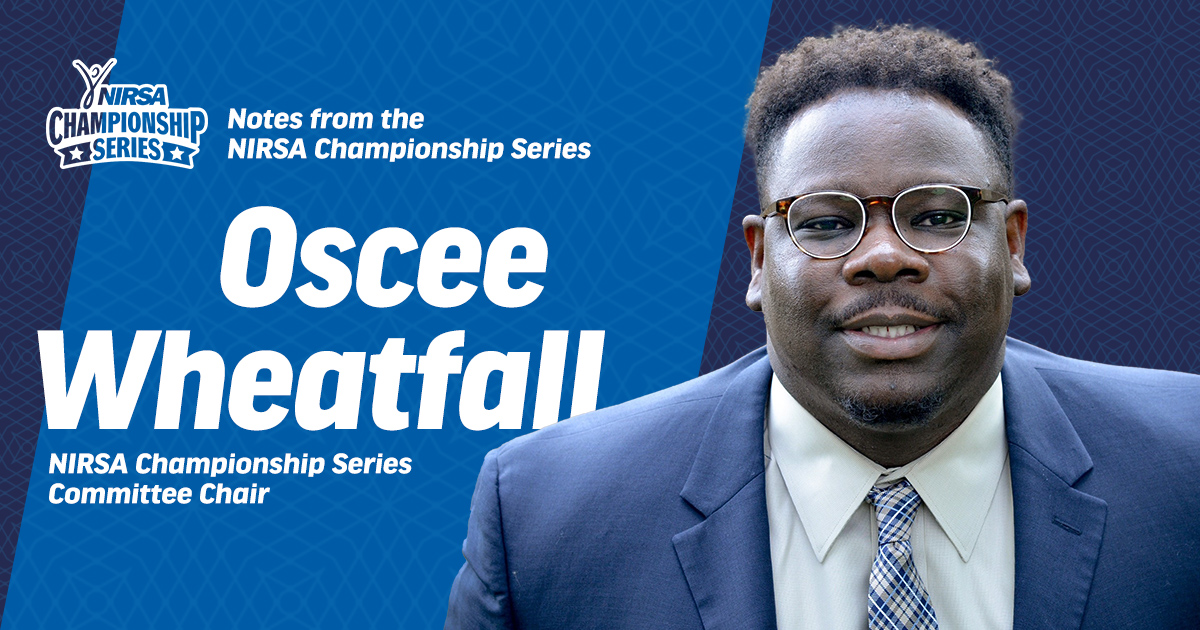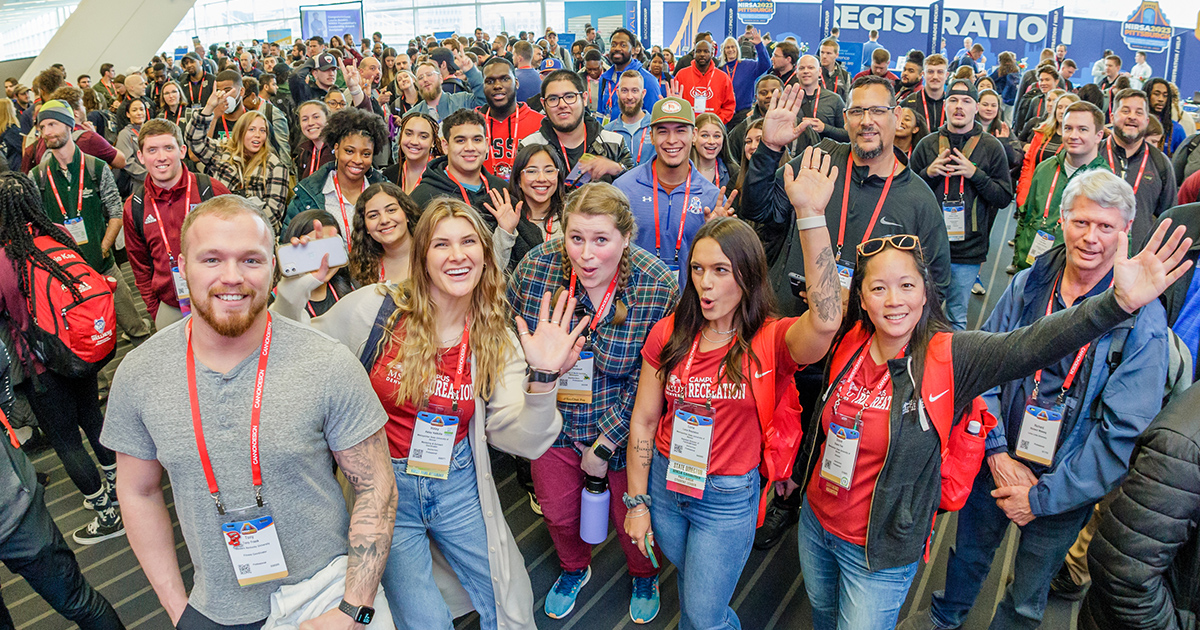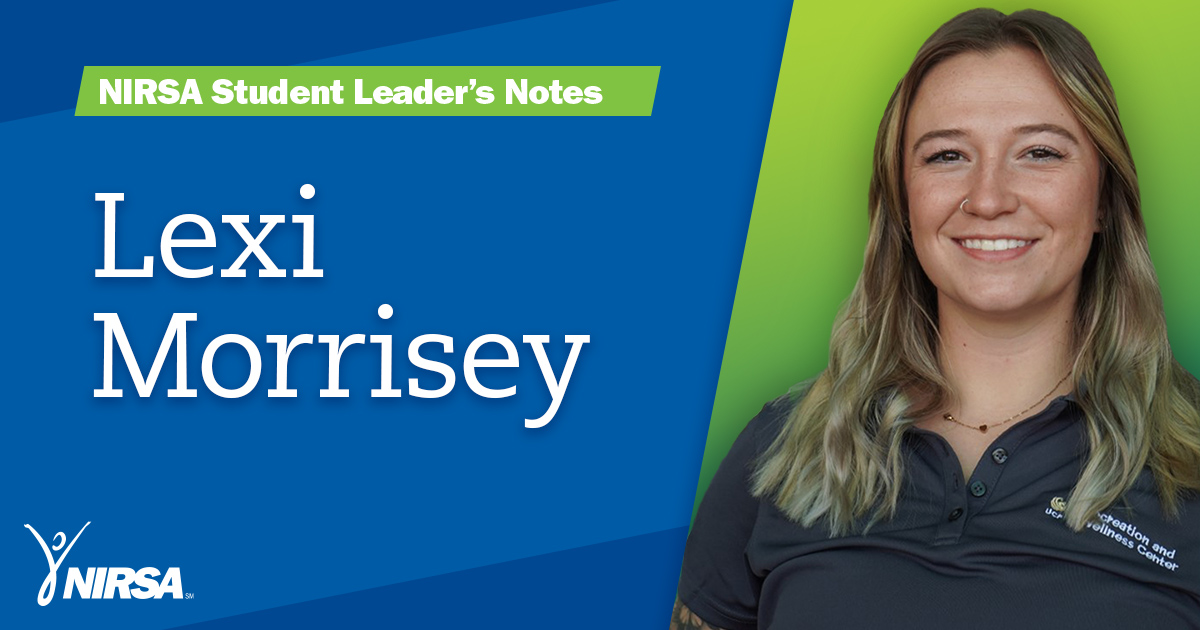In a time when we’re asked to do so much more with fewer and fewer resources, it can sometimes feel as though the work we’re doing is thankless and unappreciated. Not to mention, when you’re constantly asked to be a part of this team or assist with this project, it can weigh on you. I want you to know that not only is the work that you do important and valued, but it is also very much appreciated. I was just speaking to my supervisor during our weekly meeting and we both expressed how we need to verbally thank people more for the great work they do and for the time they put in for trying to help us achieve excellence. You’re not always going to be able to reward someone with more money, time, or an award; however, I think acknowledgements can go a long way to help reinforce and support the people doing the work.
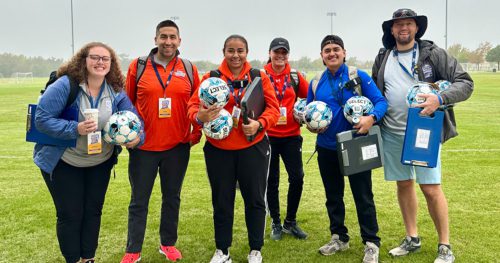
This brings me to my larger point associated with the sustainability of the Champ Series and NIRSA. From the first time I heard about NIRSA way back in 2006, it was a culture of volunteerism that permeated throughout. I heard mentors, colleagues, and peers talk about the competitive nature of trying to just get on a work team or committee. I know times have changed and priorities shift, but the progress NIRSA has made has come about due to the commitment and participation from its volunteer members. Yes, we have lost a lot of colleagues over these past few years. COVID-19, retirements, changes in career, burnout, and finances have all played a role in slowing down the rate at which people volunteer and the number of volunteers; however, now is as good as time as any to reestablish our dedication to this organization. I know some might be hesitant or unsure of where to start, but just starting anywhere is the first and most crucial step. Volunteer work and the act of giving back can reduce stress levels and promote a positive mindset. Volunteering also provides a sense of social support and belonging which can help foster resilience and combat feelings of depression and anxiety.
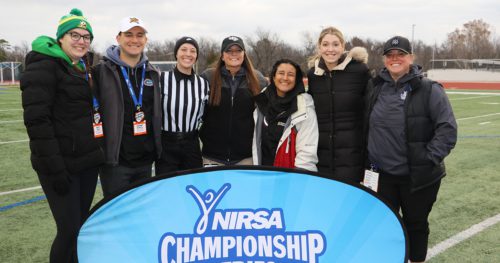
For those looking for direction, I present to you the NIRSA Championship Series. A common misconception is that volunteer roles within the Champ Series are reserved for intramural and club sports professionals, but this is simply not the case. The work teams need all types of talented people from all areas of campus recreation because of the nature of the work. The Brand Management Work Team focuses on the communication and marketing of the Series, the Analysis & Development Work Team helps collect and assess data to improve the various tournaments and procedures, the Standards Work Team deals with interpretation or rules and regulations as well as establishing policies, and—if you’re simply interested in a sport—we offer work teams for basketball, club basketball, flag football, soccer, and tennis. As you look to build on your involvement with the Association, these opportunities provide a great springboard to future NIRSA leadership positions.
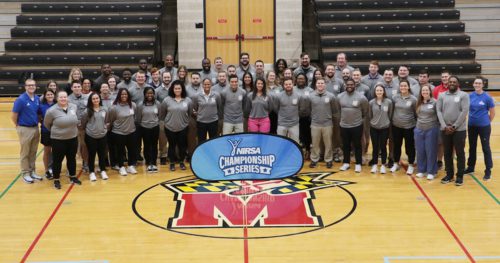
If the Series is not something you see yourself involved with, I would encourage you to volunteer and get involved with one of the many other options NIRSA has to offer. There are many opportunities that provide unique experiences and offer insight into the direction of NIRSA. Whether you’re a third-year undergrad or a twenty-year professional, you have the opportunity to work with other amazing volunteers. In the end, we all may not have the financial capabilities to support NIRSA via donations to the Foundation but our time is our most valuable resource. There aren’t many organizations that allow everyone from the newest member to the most senior member the opportunity to contribute, and we are fortunate that we are part of that kind of association. I encourage you to take advantage and play a part in the future of your NIRSA. In the words of Dr. Seuss, “Unless someone like you cares a whole awful lot, nothing is going to get better. It’s not.”
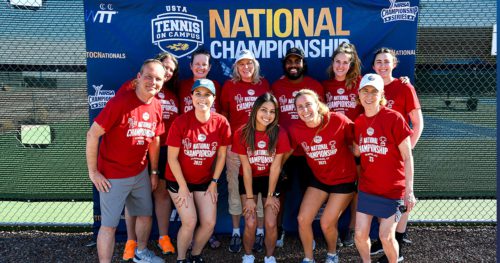
Oscee Wheatfall, Chair of the NIRSA Championship Series, is currently the Associate Director of Operations & Events at Texas A & M University-College Station.

